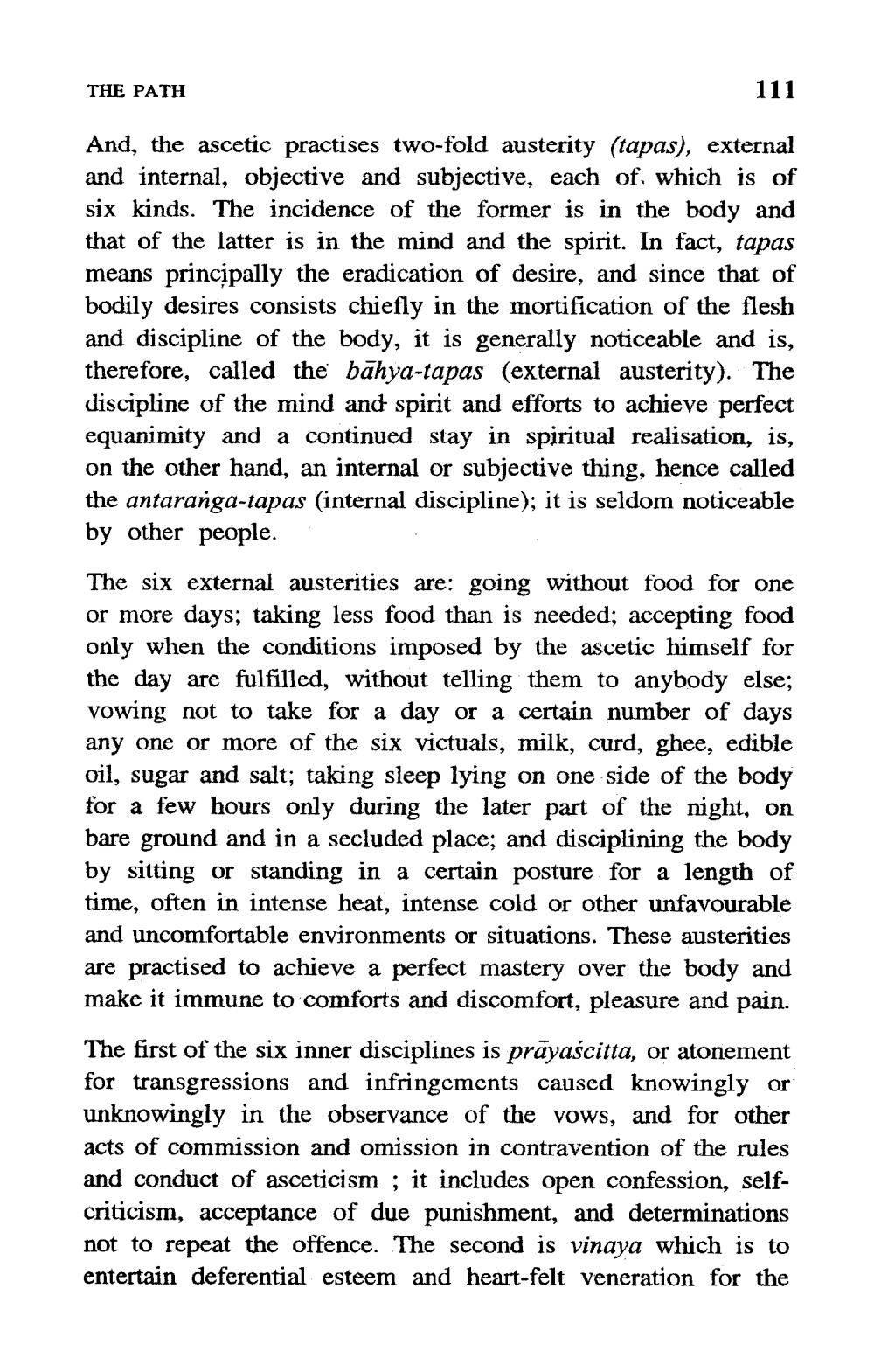________________
THE PATH
111
And, the ascetic practises two-fold austerity (tapas), external and internal, objective and subjective, each of which is of six kinds. The incidence of the former is in the body and that of the latter is in the mind and the spirit. In fact, tapas means principally the eradication of desire, and since that of bodily desires consists chiefly in the mortification of the flesh and discipline of the body, it is generally noticeable and is, therefore, called the bāhya-tapas (external austerity). The discipline of the mind and spirit and efforts to achieve perfect equanimity and a continued stay in spiritual realisation, is, on the other hand, an internal or subjective thing, hence called the antaranga-tapas (internal discipline); it is seldom noticeable by other people. The six external austerities are: going without food for one or more days; taking less food than is needed; accepting food only when the conditions imposed by the ascetic himself for the day are fulfilled, without telling them to anybody else; vowing not to take for a day or a certain number of days any one or more of the six victuals, milk, curd, ghee, edible oil, sugar and salt; taking sleep lying on one side of the body for a few hours only during the later part of the night, on bare ground and in a secluded place; and disciplining the body by sitting or standing in a certain posture for a length of time, often in intense heat, intense cold or other unfavourable and uncomfortable environments or situations. These austerities are practised to achieve a perfect mastery over the body and make it immune to comforts and discomfort, pleasure and pain.
The first of the six inner disciplines is prāyaścitta, or atonement fort ransgressions and infringements caused knowingly or unknowingly in the observance of the vows, and for other acts of commission and omission in contravention of the rules and conduct of asceticism ; it includes open confession, selfcriticism, acceptance of due punishment, and determinations not to repeat the offence. The second is vinaya which is to entertain deferential esteem and heart-felt veneration for the




